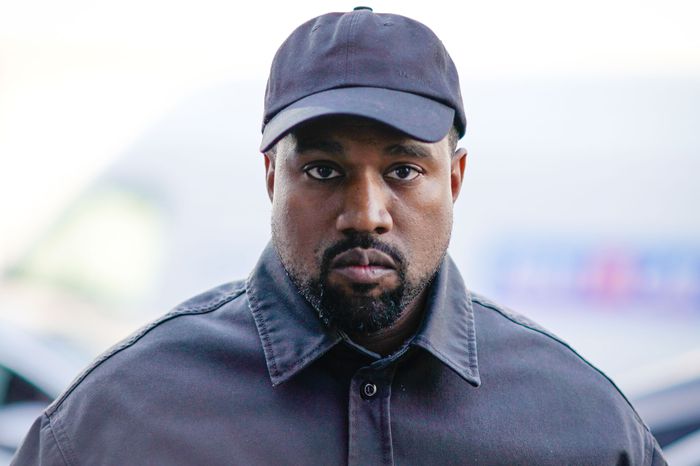
It’s been said many times that we are living in a “post-truth” world. The commentariat which proposes this view tends to think there’s no going back. That this is simply the way things are now. History tells us not to trust those who can’t imagine change, yet today’s most influential figures seem incapable of envisioning a world where five tech companies don’t trade our personal information like stocks while simultaneously poisoning discourse. Perhaps it’s whiplash from the past decade’s turbulence, engendered largely by the internet and social media. Or perhaps it’s because the status quo of consolidation and control stands to benefit the already powerful.
Kanye West is one of the most powerful celebrities on the planet. In the past two years, he’s become an advocate for a type of “post-truth” ideology which appears to contend that Donald Trump’s presidential victory, more than an emblem of the breakdown of America’s political processes, represents the indelible fact that “Feelings Matter.” He said as much during a Sacramento tour stop, in 2016, the first of his now innumerable political and philosophical screeds. Since then, Kanye has become the political right’s most unlikely spokesperson, all under the guise of some sort of futuristic thinking.
In the lead-up to his record Ye this summer, the 41-year-old rapper shared a bevy of questionable links on Twitter. Some featured conservative thinkers like Candace Owens (who would later appear at his album premiere) and another with the creator of the comic strip Dilbert, Scott Adams, a disciple of the Jordan Peterson school of thought. It appeared as though Kanye had stumbled onto 4chan and was delivering dispatches from /pol. Like many members of the far right who’ve been radicalized online, Kanye saw alleged SJWs as slaves to the mainstream media and believed that political correctness had indeed run amok. He vowed to be a free thinker, which meant subscribing exclusively to pseudo-philosophy that he’d read online. He opened his album with the shocking confession that he’d “thought about killing you,” presumably a reference to his wife, Kim Kardashian.
At the same time, he’s aligned himself with a young vanguard of hip-hop artists whose teenage fan bases occupy seedier corners of the web. His upcoming record Yandhi reportedly features XXXtentacion and 6ix9ine, two artists accused of sexual misconduct — the former was gunned down in broad daylight earlier this year. The controversy surrounding these acts bears a striking resemblance to Gamergate: Anytime XXXtentacion’s alleged crimes are mentioned, rabid fans flood comment sections with claims that his accuser was lying (she most likely wasn’t). The reach of such “problematic” rappers is a direct product of online platforms like SoundCloud, that give outsize influence to viral acts before they’ve had a chance to develop, or before the skeletons in their closets emerge.
Kanye’s optimism in the power of the internet, and in the infallibility of youth, goes back as far as his 2015 VMA speech in which he alluded to running for office. “Listen to the kids, bro!” he implored. The youth, unfortunately, have proven that not only can they not save us, but they exhibit many of the same attitudes as adults. Still, the connective tissue between Kanye’s alt-right leanings and his adoption of young viral rappers is a complete obsession with the internet. Kanye, like the cyberspace theorists of the 1960s, sees the web as a platform devoid of the messy particulars of real life. He told the audience at SNL that “if I was concerned about racism, I would’ve moved out of America a long time ago.” It’s the type of logic you’d expect from a Supreme-drenched white kid who swears he’s allowed to say the N-word. The internet, in this view, has made all of those old -isms obsolete. Never mind the fact that the Supreme-drenched white kid likely attends an effectively segregated high school. The internet has changed things!
Slavery is a topic that Kanye seems particularly fascinated by of late. Last week, he visited The Fader’s offices in New York and proclaimed that there were just 800 slaves in the antebellum South — a falsehood born on the internet. But it’d be useful to unpack just how much the internet, far from a neutral or apolitical environment, has enslaved Kanye West. The optimism of the web’s early advocates — like John Perry Barlow, who wrote the treatise A Declaration of the Independence of Cyberspace in 1996 — has proven to be misguided. But it hasn’t stopped West and his ilk from using it as a means of ignoring material reality. Perhaps Kanye should Google the hackers Phiber Optik and Acid Phreak who, frustrated at Barlow’s overly utopian vision, stole his credit records from TRW Inc. and posted them on the internet, illustrating the ways in which old power structures are alive and well online.
It is an admirable creative impulse to adopt the habits of the contemporary, but only when its tempered by something more substantive. Kanye was always an artist who bucked trends and challenged expectations, which makes his complete surrender to the norms of the internet so disappointing. The “SJWs” fighting to change how things are in the real world aren’t the enemy, it’s people like Kanye who’ve been blinded by the lie of an internet utopia.

